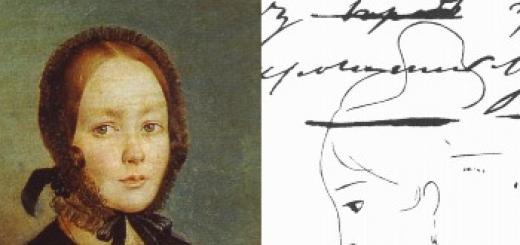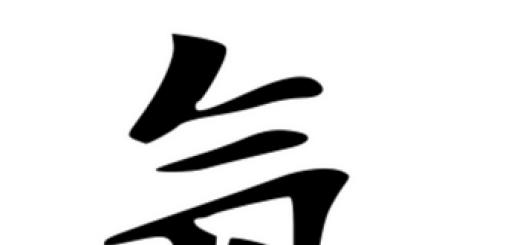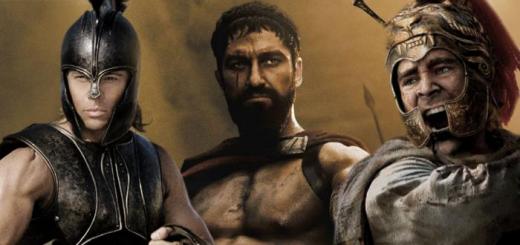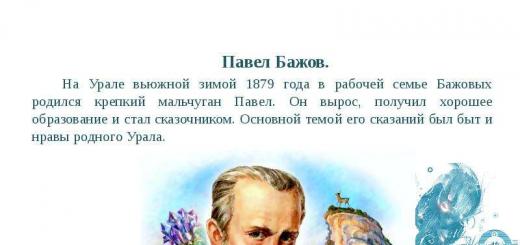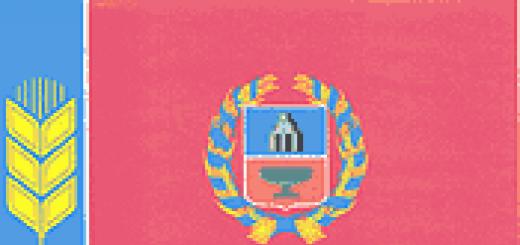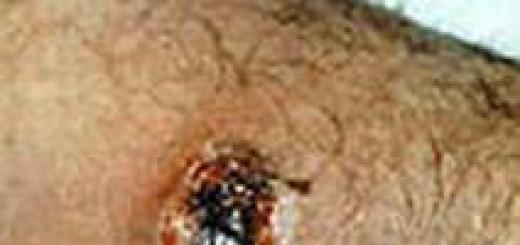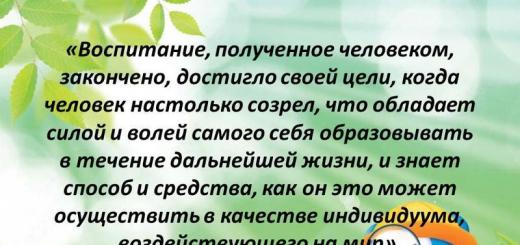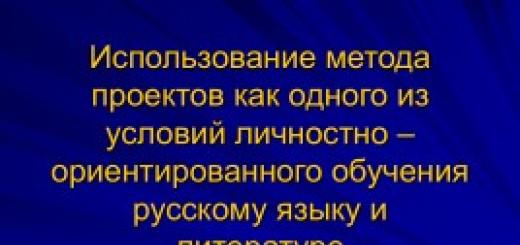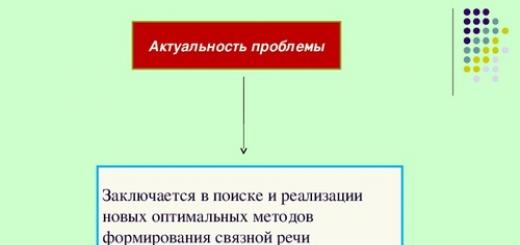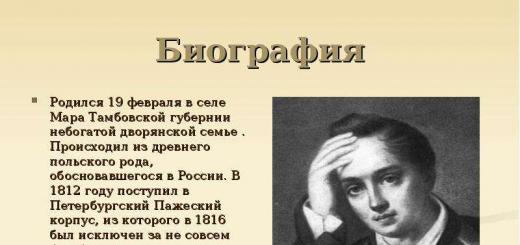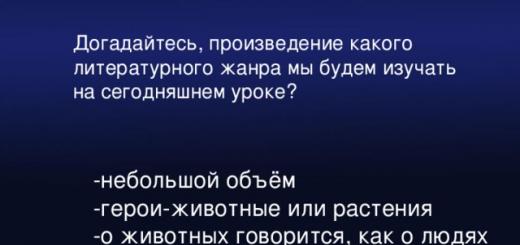The Soviet cartoon about the village of Prostokvashino is among the top television projects for children, on which more than one generation has grown up. This cartoon is traditionally shown on TV during the New Year period; today it can also be watched on the Internet. The cycle consists of three episodes: “Three from Prostokvashino”, “Holidays in Prostokvashino” and “Winter in Prostokvashino”.
The lively characters presented in the animated film are easily remembered by children. The remarks that are spoken by Uncle Fyodor and are passed on from mouth to mouth in the form of aphorisms. The songs used in the dubbing of cartoons also gained great popularity.
History and plot
The basis for the famous cartoons was the work “Uncle Fyodor, the Dog and the Cat,” which was written by children's author Eduard Uspensky. The story about a boy whose friends became the dog Sharik and the cat Matroskin gave birth to an animated series. The book described the life and adventures of an ordinary Soviet family, and the cartoon gave it an interesting continuation.
Uncle Fyodor is the main character of the plot. She gave him a voice in the cartoon. This is an erudite boy who by the age of four was reading books on his own, and by the age of six was able to cook his own lunch. The parents, mother Rimma and father Dima, love their son and trust him, understanding that the child is growing up as a reasonable and reasonable person, not prone to pranks. That's why they called him "uncle." The idea that Uncle Fyodor is just getting ready for school is hard to wrap his head around in the minds of TV viewers, because the boy appears to be an accomplished person.
He loves animals, but it is impossible to keep a pet in a city apartment, since his mother has no sympathy for dogs and cats. Uspensky's story tells how Uncle Fyodor had a fight with his parents and, while eating a sandwich, went for a walk. On the way, he met new friends with whom he decided to move to a new place of residence. It became the village of Prostokvashino. A seven-year-old boy, the owner of bright blue eyes and red hair, writes a letter to his parents in which he says that he plans to settle in the village with new friends, a good-natured stray dog and a cunning cat.

Uncle Fyodor's life becomes varied, because the cat and the dog offer interesting initiatives. Together they look for the treasure to get a reward. With the money raised, the friends decide to buy a cow. Murka, who became the brainchild of Matroskin, gives milk, and over time she has a calf.
Uncle Fyodor manages to cope with everyday life and constantly reconcile Matroskin and Sharik, who live “like a cat and a dog” and only occasionally declare a truce. The boy establishes a relationship with the suspicious and grumpy postman Pechkin and finds a second home in Prostokvashino, which he lacked in his Moscow apartment.
Uncle Fyodor does not forget about his parents and periodically writes letters that describe pictures from his village life. Happiness lasted until he fell ill and his parents took him home for treatment, promising that the boy would spend his holidays and summer in Prostokvashino in the company of Matroskin and Sharik.
Family
The cartoon describes a typical Soviet family, consisting of parents and a boy - Uncle Fyodor. Later, a dog and a cat, faithfully waiting in the village of Prostokvashino, become its members. Over the course of three cartoons, the boy's image changes, but his clothes remain the same. These are the realities of harsh Soviet childhood. Over time, the viewer learns various details about the life of the family from the plot.

Uncle Fyodor's dad was a respectable-looking academician: with a beard and a pipe in his hands. He was not distinguished by career achievements, but was a loyal father, an honest and reasonable man, prone to irony. He easily goes on adventures, has various knowledge and skills: he can easily fix a car and does not hesitate to pull it out of the snow on his own. Dad is not keen on raising Uncle Fyodor and perceives him as an equal, for which he periodically receives a reprimand from his mother.
Forbidding his son nothing, he easily lets the child live in the village, while he basks in the gentle sun of the resort, without worrying about the boy’s safety. A man can be considered henpecked, because he listens to his wife’s opinion in everything and tries not to upset her.

But at the right moment he is able to make a serious decision, and the last word remains with him. Dad loves his family, is jealous of his wife’s colleagues and is not against the second child, whom Uncle Fyodor’s mother is so afraid of.
At first glance, Rimma creates a not very pleasant image. She doesn’t even want to think about a second child, because now her career comes first. A hysterical and scandalous woman is accustomed to reproaching her husband for inactivity, keeps her son strict and every now and then complains about her life. At the same time, she does little to raise her son, who is forced to become independent from an early age. Modern parents are horrified, realizing that Uncle Fyodor ate sandwiches and walked with stray animals.

The boy's mother is much more concerned about her appearance and self-realization. At the same time, she manages to do household chores and, perhaps, quite objectively declares that she has no strength left for anything else. Like any Soviet girl, she is optimistic and athletic.
After some persuasion, she finally decides to take on such an adventure as celebrating the New Year in Prostokvashino, and gets there on skis to be with her family. It is difficult to call this family a full-fledged one, it is the personification of a social unit of Soviet times, in which the husband repairs the car, the mother takes care of the housework and manages to work, and the son is left to his own devices, but manages to grow up to be a decent person.
Cartoons
All three cartoons are based on a plot invented by Eduard Uspensky and tell about life in Prostokvashino and adventures in the family of Uncle Fyodor. Over time, cartoons have gained more popularity than the story. The first cartoon, “Three from Prostokvashino,” was created in 1978. Two years later, “Holidays in Prostokvashino” appeared on the screen, and in 1984 viewers were able to see the cartoon “Winter in Prostokvashino.”
Modern animators tried to repeat the success of the trilogy by creating a series called “Spring in Prostokvashino,” where the main characters operated computers and other technological advances. They were not in demand among viewers who were accustomed to emotional images and a simple plot.

The specificity of creating a three-part project was that director Vladimir Popov distributed the images between the directors. So, Levon Khachatryan got his parents, Pechkin and uncle Fedor, and Nikolai Erykalov worked on the animal characters: Matroskin, Sharik, Murka and Gavryusha. Uncle Fyodor's parents resembled the Swedish family depicted in the 1968 cartoon "The Kid and Carlson." The images described in the cartoons were carefully crafted and believable. Some of them were copied from famous people and characters.
For example, the prototype for Rimma’s mother was Khachatryan’s wife, Larisa Myasnikova. And the prototype of Pechkin is Kurochkin from the cartoon “The Adventures of Vasya Kurolesov”. The directors who worked on the animated series already had experience in creating successful projects. A striking example of joint creativity is the cartoon “Bobik Visiting Barbos”.

But, despite the successful interaction, the directors for a long time could not understand what Uncle Fyodor should be like, so his type was subject to changes from cartoon to cartoon.
Russian animators are planning to release 30 episodes about the adventures of their favorite heroes in modern realities. In the future, viewers will be able to see how familiar characters have changed over 20 years.
In the cartoon itself, the names of the parents of the boy with the interesting name Uncle Fyodor were never mentioned: they call each other dear and dear, and their son calls them mom and dad, respectively. You can only find out their names from the book on which this cartoon was based: the author Eduard Uspensky named his characters Rimma and Dmitry, and gave them the surname Svekolnikovs.
Uncle Fyodor's dad and mom from the Prostokvashino cartoon series are funny guys. They are such typical Soviet parents, which, however, are very interesting to watch.
We know the names of all the characters in Prostokvashino, but few people think about the names of Uncle Fyodor’s father and mother.
I don’t remember that their names were mentioned in the cartoon itself, but I know for sure that the parents’ names are Rimma and Dima (I think you’ll figure out which name is mom’s and which is dad’s).
Not many who watched the famous Soviet cartoon Three from Prostokvashino know the names of Uncle Fdor's mom and dad. Their names are familiar only because I read Eduard Uspensky’s story Uncle Fdor, the Dog and the Cat, since their names appear only there.
Fdor's mother's name is Rimma, and his father's name is Dima. And all three of them are Svekolnikovs.

As far as I know, in the cartoon about Prostokvashino no one ever named the parents’ names, but in the book by E. Uspensky you can find such information. Uncle Fyodor's mother's name is Rimma, and dad - Dima.

The cartoon about Prostokvashino, as far as I quickly skimmed through the work of Eduard Uspensky, was already based on this story, which is why mom and dad were not given names, leaving them just as parents. By the way, it’s good that the production is old and ours, otherwise we could replace mom and dad with parents 1 and 2, following the example of France. In the book there are names for both of them: mother - by name Rimma, and dad is Dmitry or simpler Dima.
Excerpt from the original...
Usually in cartoons, as in life, parents are called Mom and Dad. A child will not call his parents by name. It’s the same in the cartoon Prostokvashino: Uncle Fyodor, the cat and the dog, we don’t hear the names of Fdor’s parents. However, after reading the story by E. Uspensky, based on which the cartoon was based, you can find out their names - Dima and Rimma Svekolnikovs.

Uncle Fyodor's mom and dad were not called by name in the series of cartoons about Prostokvashino. But we can learn such information from the book of Eduard Uspensky, where Uncle Fyodor’s mother’s name was Rimma, and dad's name was Dmitriy by the surname Svekolnikov.

Mom and dad are not the main characters of the cartoon series about Prostokvashino. But we can glean the missing information from the book of Eduard Uspensky. Mom's name was Rimma, and she was voiced by Valentina Talyzina. Dad's name was Dima, and he was voiced by German Kachin.
According to the book by Eduard Uspensky, Uncle Fyodor's parents' names are Rimma and Dmitry Svekolnikov.
By the way, Uncle Fyodor also has great aunt(maternal) T Amara Semnovna Lomovaya-Bambino, who in the past served in the economic department in the army and even has the rank of retired colonel.

Prostokvashino: Uncle Fedor, cat and dog- this is my favorite cartoon as a child and I know all the episodes by heart.
Dad Uncle Fdor is very rarely called by name in the cartoon, and even then not by his real name, but by a comic one. His real name Dmitry Svekolnikov. A mom the boy's name was - Rimma.
According to the cartoon, Uncle Fyodor's parents did not have names; they were called only mom and dad. But according to the book they have names, Dima and Rimma.

USSR, Soyuzmultfilm, 1978-1984. Director: V. Popov Script: Eduard Uspensky Production designers: L. Khachatryan, N. Erykalov Composer: Evgeny Krylatov
Hero of Prostokvashino No. 1: Uncle Fedor- This is a little boy, too independent. And probably, in order to look older and more independent, he calls himself “Uncle Fedor.”
Fedor is distinguished by his determination and kindness. On the landing, he picks up a stray cat, Matroskin (“that’s his last name”), and soon leaves with him for the village of Prostokvashino.
The role of Uncle Fyodor in the cartoon "Three from Prostokvashino" was voiced by Maria Vinogradova.
 Hero of Prostokvashino No. 2: Matroskin the cat- The cat Matroskin is a very economical cat, he loves to save money, he knows how to run a household and herd a cow because of his great love for milk. He often grumbles, but is easy-going...
Hero of Prostokvashino No. 2: Matroskin the cat- The cat Matroskin is a very economical cat, he loves to save money, he knows how to run a household and herd a cow because of his great love for milk. He often grumbles, but is easy-going...
When Fyodor’s mother agreed to take the cat home to the city, Matroskin refused and stayed with Matroskin in Prostokvashino to guard the house and household.
The role of the cat Matroskin in the cartoon "Three from Prostokvashino" was voiced by Oleg Tabakov.
 Hero of Prostokvashino No. 3: dog Sharik- the dog Sharik was homeless and was already a resident of Prostokvashino. It was he who showed the house from which the owners had left to live across the river and invited them to live in the house “Live whoever you want.”
Hero of Prostokvashino No. 3: dog Sharik- the dog Sharik was homeless and was already a resident of Prostokvashino. It was he who showed the house from which the owners had left to live across the river and invited them to live in the house “Live whoever you want.”
Sharik met Fedor and Matroskin near the village. He asked to take him in, but Matroskin said to come to them only after a year. But Uncle Fyodor said in a firm voice that “a good dog won’t hurt anyone” and left Sharik, and so it all began.
The role of Sharik in the cartoon "Three from Prostokvashino" was voiced by Lev Durov.
 Hero of Prostokvashino No. 4: Uncle Fyodor’s mother- Uncle Fyodor’s mother is very strict, but kind. He loves a clean house, sometimes goes to the sea, and performs at concerts. Loves his family very much. Sometimes she grumbles, but she is also easy-going.
Hero of Prostokvashino No. 4: Uncle Fyodor’s mother- Uncle Fyodor’s mother is very strict, but kind. He loves a clean house, sometimes goes to the sea, and performs at concerts. Loves his family very much. Sometimes she grumbles, but she is also easy-going.
The role of Uncle Fyodor's mother in the cartoon "Three from Prostokvashino" was voiced by Valentina Talyzina.
 Hero of Prostokvashino No. 5: Uncle Fyodor’s dad- Fyodor’s dad is a sedate man, a good family man. He likes to read the newspaper on the sofa and repair his car right in the apartment. He always listens to his mother, despite his own opinion. I don’t mind having a second child in the family so that “mom can calm down.”
Hero of Prostokvashino No. 5: Uncle Fyodor’s dad- Fyodor’s dad is a sedate man, a good family man. He likes to read the newspaper on the sofa and repair his car right in the apartment. He always listens to his mother, despite his own opinion. I don’t mind having a second child in the family so that “mom can calm down.”
The role of Father Fyodor in the cartoon "Three from Prostokvashino" was voiced by German Kachin.
 Hero of Prostokvashino No. 6: postman Pechkin- Pechkin is a village postman, tall and thin, wearing a long brown raincoat. Doesn't grumble or be mischievous a lot. After he received a bicycle as a gift from Fedor’s parents and a new hat from Matroskin, he immediately became kinder (the dog accidentally shot through Pechkin’s earflap hat when he was boasting about his accuracy), but maybe this is only because he retired... Pechkin loves to drink tea with bagels and sweets and his job as a postman.
Hero of Prostokvashino No. 6: postman Pechkin- Pechkin is a village postman, tall and thin, wearing a long brown raincoat. Doesn't grumble or be mischievous a lot. After he received a bicycle as a gift from Fedor’s parents and a new hat from Matroskin, he immediately became kinder (the dog accidentally shot through Pechkin’s earflap hat when he was boasting about his accuracy), but maybe this is only because he retired... Pechkin loves to drink tea with bagels and sweets and his job as a postman.
The role of Pochtalyon Pechkin in the cartoon “Three from Prostokvashino” was voiced by Boris Novikov.
I recently re-read and was again impressed by the fundamental research ““. And how can people approach ordinary things in such an original way? An enviable ability... Leading, at times, to unexpected results.
In fact, on our website we try to support the topic of logical thinking. For example, we have such shocking articles as:
- Shock! No need for chips in your heads! Total control is implemented differently!!!
The truth about Uncle Fyodor from Prostokvashino, however, is more spectacular and thought out, or what?..
Therefore, let’s not be too lazy to replenish our “Humor” section and the “” subsection with these secret materials :)
But it is human nature to strive to find out the truth, sometimes bitter - isn’t this what girls who read their boyfriends’ emails and text messages strive for?
And sometimes the truth is not just bitter, it is terrifying.
I thought about this recently when, together with my son, I watched a cartoon that rightfully occupies a place in the “Golden Collection of Soviet Animation”, which was watched by more than one generation of Soviet children. Surprisingly, none of them, including me, saw in him anything other than the generally accepted interpretation of events. Until this very moment.

I believe that we should forget about stereotypes and try to understand what the author wanted to tell us about, guided solely by logic and common sense. And accept the truth that remained hidden from our consciousness for many years, get answers to a riddle that for some reason no one saw.
So, the unfading Soviet classic is “Three from Prostokvashino”.
What is this cartoon really about?

The story begins simply - a certain boy comes down the stairs and chews a sausage sandwich. Right on the stairs, the boy meets a cat “living in the attic,” “which is being renovated.” Let's remember these key words, they are very important for understanding the essence of what is happening, we will return to them later.
A conversation between a boy and a cat in itself is not something unusual for cartoons, although as a rule, animals talk to each other in them, and not to people. But there are plenty of exceptions - for example, Russian folk tales, in which talking frogs, hares and bears operate. But this cartoon is not a fairy tale at all, as we will soon see.
From the dialogue with the cat, a funny thing emerges - the boy’s name is “Uncle Fyodor”, which makes the viewer think about the question - why is a small-looking boy called so adultly - “uncle”? And if he is an uncle, then where is his nephew? What happened so brightly in the past that the prefix “uncle” was firmly attached to Fedor? I used to wonder about this question too, but was not ready to know the answer. But he is here - before my eyes. But let's not get ahead of ourselves.
Uncle Fyodor lives with his mother and father, no mention of other relatives, especially his nephew. It seems that this topic is painful for this family and is simply passed over in silence.

Uncle Fyodor brings a new friend, a cat, home from the “attic that is being renovated.” The parents do not approve of their son's behavior, and Uncle Fyodor immediately goes on the run. Such street boys in the Soviet Union were skillfully sought out by law enforcement agencies and immediately put on a register, sometimes psychiatric. It’s strange, but Uncle Fyodor’s parents are in no hurry to contact the police, which poses a new mystery for us: why don’t they do this?
Meanwhile, Uncle Fyodor and his new friend, the cat Matroskin, arrive in the village of Prostokvashino. Why did the boy choose this particular locality? Is this an accident or a deliberate step? We will soon get the answer to this question, but first we will figure out what this village is like.
"Prostokvashino" is a strange and, I would say, scary place. No one lives in the village - you can’t hear the roar of cows, the crowing of roosters and other sounds inherent in Soviet villages. All its inhabitants suddenly left the village, moving “across the river.” Let's take a look at this frame - this is where the residents of Prostokvashino moved to. Leaving the warm houses with half-kitchen stoves, vegetable gardens, and household chores, they packed up and left the village in a hurry, preferring to private houses the dubious pleasure of living in standard high-rise buildings on an island in the very middle of the river.

It can be seen that, apart from high-rise buildings, there are no shops, no roads, or a hint of developed infrastructure on the island. There is not even a bridge or ferry connecting their new home to the mainland. But the residents of Prostokvashino seem to have taken this step without hesitation. What could drive them away from their familiar land?
The answer is obvious - fear. Only fear could force people, leaving everything behind, to move into panel housing, hoping that the river could save them from what they were running from. Shocked and horrified by what forced them to abandon their homes, people left them habitable. The houses are in excellent condition and you can try to rent them out to summer residents from Moscow, but for some reason this thought does not occur to the residents of Prostokvasha.
Moreover, one house is equipped with a friendly sign “live whoever you want.” The people who made this inscription know very well what they are being saved from. And worst of all, they know that this “Thing” that frightened them so much may return. This inscription is a timid and naive attempt not to anger something that will definitely come back, to appease it, to try to make it so that it does not want to cross the river, which hardly seems to the former residents of Prostokvashino to be a reliable protection. Renting out housing to those who know nothing about the sinister secrets of Prostokvashino means putting their lives at risk. The Prostokvasha residents cannot agree to this. Maybe the rental housing market is not developed in this region? We will get the answer to this question later.
Such villages and towns are widely described in literature, especially in the works of Stephen King and Lovecraft. Why was Prostokvashino never put on a par with the creepy American towns where evil was committed? I believe that we are talking about Soviet censorship, because of which this story had to be told the way it is told.
In the village, Uncle Fyodor makes a new friend - the dog Sharik, now they are “Three from Prostokvashino”. Sharik also speaks Russian and Uncle Fyodor understands him perfectly. The viewer still does not receive an answer - is this a fairy tale or not? Is it normal for animals to talk to people?
At this point, the viewer learns that the village is not completely empty. One person still lives in it. This is an employee of the Russian Post, an organization that many of our fellow citizens still consider to be the center of evil, in many ways I think subconsciously precisely because of watching this cartoon in childhood - postman Pechkin. Stephen King might be surprised, but the Soviet and subsequently Russian audiences see a deep hidden meaning in this. In a completely deserted village, in which some great evil has happened that frightened the inhabitants, the organs of Soviet power are completely absent. There is no village council, no district police officer. There is only Pechkin, who works at the Post Office in a village where there is simply no one to deliver mail. There are no magazine subscribers or letter recipients in the village, and there are no pensioners left who could come for their pensions.
A reasonable question arises: is Pechkin really a postman? Maybe this is a war criminal hiding from retribution or a fugitive criminal who has chosen this godforsaken corner as his place of residence, into which a police officer would never even think of poking his nose, not to mention the agents of Simon Wiesenthal. Or maybe Pechkin is a sexual pervert? Isn’t this what the author of the film is talking about when he dresses Pechkin in a characteristic raincoat? Or is it precisely the Evil that many associate with Russian Post that drove the residents out of the village? Further analysis will show that everything is much more complicated.
Pechkin greets Uncle Fedor. The whole “trinity” greets him - but the articulation of the lips at this moment shows that all three are saying different things, and certainly not “thank you.” What exactly they are saying, anyone interested can easily find out for themselves by reviewing this moment several times.

But Pechkin doesn’t seem to see anyone except Uncle Fyodor, isn’t it strange? This is another small touch that brings us closer to understanding what is happening.
The first question from newcomers addressed to Pechkin is very typical:
— Are you from the police by any chance?
The newly arrived company is excited solely by this; obviously, they have no interest at all from law enforcement agencies, although it would seem that there is nothing to be afraid of for a cat or a dog. This is a very significant fact, complementing the reluctance of Uncle Fyodor’s parents to contact the police with a statement about the missing child.
Reassured by the fact that Pechkin belongs to the Post Office, Uncle Fyodor announces his desire to subscribe to the Murzilka magazine, obviously neglecting the prospect of receiving a new issue in a few years or never receiving it, which is even more likely. Uncle Fyodor does what any little boy his age would do, but is he sincere? Is he trying to confuse Pechkin?
And here we return to the question that worries us - why Uncle Fyodor, having gone on the run, headed specifically to Prostokvashino. Has he ever been here before? Of course the answer is yes. It was his activity at Prostokvashino during his last visit that may have been the reason why the village residents chose to leave their usual habitat. But did everyone manage to escape?
Despite the fact that no one lives in the village except Pechkin, Uncle Fyodor waits until nightfall. This is his true goal and the viewer, of course, is not disappointed.

Unerringly orienting himself in complete darkness, Uncle Fyodor goes into the thicket of the forest and there, guided only by noticeable landmarks and animal instincts, in a matter of minutes he digs up a hefty chest. Uncle Fyodor comes up with ridiculous explanations for this - he says to the cat and dog that this is a “treasure”; to Pechkin, who came across on the way back, he declares that there are mushrooms in the chest. Even a primary school student who has read Tom Sawyer and Stevenson’s “Treasure Island” knows that treasures are looked for in a completely different way than Uncle Fyodor did. Uncle Fyodor knew what he was doing and was guided by a clear and precise calculation.
What's really in the chest? Valuables taken from the residents of Prostokvashino at gunpoint during his last visit to the village? Or is there the corpse of his unlucky nephew, who went with Fyodor into the night forest and met his fate there? Is this why they began to call Fyodor “uncle”? Perhaps, but this is only one part of the answer.
How did Pechkin end up in the forest at night? He is chasing a little jackdaw. Judging by the conversation, the little chick is seriously ill, and Pechkin proposes to “take him to the clinic for experiments.” This phrase can cause nothing but a smile. There is no clinic nearby and there cannot be; it would be good if it was an abandoned morgue for those whose bodies were found and not buried in chests.

Uncle Fyodor is not surprised when he hears the word “clinic” and declares that he will “cure the little jackdaw and teach him to talk.” Uncle Fyodor has no doubts about the illness of the little jackdaw. And at this very moment we receive an unexpected answer to the question - is what is unfolding before our eyes a fairy tale or not? Of course not. Being in a fairy tale, the little jackdaw would already be able to talk, like Totoshka and the crow Kaggy-Karr in the Magic Land. But the little jackdaw can't.
It doesn’t matter what Pechkin himself did in the forest at night. It is important that after the conversation with Uncle Fyodor he twirls his finger at his temple. Pechkin understands that the boy is mentally ill.
And we understand that, like the little jackdaw, neither the cat Matroskin nor the dog Sharik can speak. Their voices simply sound in Uncle Fyodor’s head, he communicates with them as with real friends. And this is where it gets really scary. Uncle Fyodor is seriously and possibly terminally ill. The period of remission of his mental illness ended at the very beginning of the film, when the cat living in the “attic” appeared. “There’s something wrong with the attic,” and a second personality appears—the cat Matroskin. Either that day Uncle Fyodor forgot to take pills or give an injection, but he went on a rampage. The “Attic” requires serious “repairs,” but Uncle Fyodor does not understand this at that moment and runs, runs away from the house. Uncle Fyodor wants to thereby protect mom and dad and save them from the fate of their nephew, and possibly their aunt and uncle, who also most likely did not have the chance to escape on the island in a panel high-rise building.
Uncle Fyodor wrote in a farewell note “I love you very much.” “But I also love animals very much,” he added then, making it clear that he was no longer alone. Uncle Fyodor doesn’t want to write directly, although he knows very well that his parents won’t go to the police.
And Uncle Fyodor’s parents openly discuss his inclinations and the puzzle gradually becomes complete. Dad says that Uncle Fyodor would like to have “a whole bag of friends at home.” This is Uncle Fyodor’s true inclinations - to hide children in a bag or, say, in a chest. Speculation about the fate of the “nephew” is no longer just guesswork. Fyodor’s mother does not think that we should give up on her son’s mental illness. She fears for her life and bitterly says “then my parents will start disappearing.” And we understand that Fedora’s “aunt and uncle,” natives of Prostokvashino, did not make it to the new panel housing, but went missing, like his “nephew.”
Fyodor’s mother is hysterical, he convinces her husband that the boy must be found before he does anything wrong.

Dad agrees. Naturally, going to the police is not an option - in this case, you can sit in jail for a long time, so Fyodor’s parents decide to publish a “note in the newspaper.” And its text tells us a lot. In the note we see a photograph and height - twenty meters. The age is not indicated, and here we understand that this is no coincidence. Uncle Fyodor simply looks like a little boy and, by subscribing to the Murzilka magazine, he is simply masking his true age. He is at least 18 and he may well be responsible for his actions, unless, of course, a psychiatric examination declares him insane.
Please note that when publishing the note, dad did everything so that the boy would not be found - neither his first name nor his last name, nor his age, nor his weight. There is no contact phone number either. Here we see the answer to the question that has already been raised - could the Prostokvashin residents rent out their houses to summer residents? Of course, yes, the “Will Hire” section is shown in the newspaper for a reason. There are a lot of offers for rent, but there are no people willing to rent out housing.
Fyodor’s short stature and dwarfism are a symptom of a whole bunch of unpleasant diseases. There are both genetic disorders (look at Uncle Fyodor’s chin in profile) and hormonal ones, of which the lack of growth hormone is the least of the problems. It's hard to blame him for the crimes he committed. Having realized all the pain of imprisoning an adult man in a hundred and twenty centimeter body, you begin to empathize with Uncle Fyodor, understanding the burden he carries on his shoulders.

The notice about the search does not go unnoticed and catches the eye of Pechkin, who naturally looks through the criminal sections and police reports in all newspapers, since he himself is obviously wanted. Having seen a photo in the newspaper, Pechkin understands that he needs to “surrender” the boy. Understanding full well that Uncle Fyodor’s chest contained not mushrooms, but valuables, and possibly terrible incriminating evidence, Pechkin sensibly reasons that Fyodor is too dangerous to be blackmailed. And it’s better to take a bike than to end up in a bag and then in a chest.
Meanwhile, Uncle Fyodor’s illness is progressing. Consider the letter he writes to his parents on behalf of all the characters in his triple personality. He begins the touching letter himself, but quite quickly his hand is taken over by a second personality - a cat, then a dog. Having started the letter with a positive note, Fyodor suddenly subconsciously writes the truth - “but my health... is not very good.” From that moment on, the bestial nature of his brain no longer lets go of Fyodor, all he manages to write is “your son” and yet the ending is blurred - “Uncle Sharik”.
Fedor's parents are shocked.

They understand perfectly well what the aggravation of their son threatens them with. One by one they lose consciousness from horror, and then the mother asks hopefully: “Maybe we’ve gone crazy?” Dad does not support her, answering dryly that “one by one they go crazy.” And at this moment both know perfectly well who they are talking about. Now you know too.
And Fedor is already in bed with a thermometer under his arm.
Visually, it seems that he has something simple - like meningitis, complicated by bird flu received from a sick little chick, but of course the question is more serious. A little more and the lives of civilians in the central zone of the Soviet Union would have been in jeopardy, and they would have had to be transported en masse to Russky Island if the little human that remained in Uncle Fyodor’s brain had completely given way to the bestial. But the threat has passed - the parents still decide to take Uncle Fyodor home, although they initially did not intend to do this - what other explanations can be given for the fact that they did not indicate their home phone number in the note?
Pechkin receives his bicycle, and the two animal personalities of Uncle Fyodor’s consciousness remain in the village and do not ride with him, which is why the viewer remains in the timid hope that the disease has receded under the onslaught of powerful medications. The question is for how long?

The cartoon, which rightfully took its place in the “Golden Fund of Animation,” unfortunately has not yet revealed all its secrets. But this certainly requires special psychiatric education and deep medical knowledge. And who knows what changes the Soviet censor made to the script, and what the filmmakers were simply forbidden to tell about. We may never know about this.
And the personality of the postman Pechkin with an analysis of his dark side is still waiting for its researcher.
This is how it is, the truth about Uncle Fyodor from Prostokvashino...

Based on materials from http://www.libo.ru/libo7823.html
